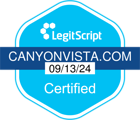Journaling can be an invaluable part of the recovery process for those battling drug and alcohol addiction. It offers a structured way to articulate thoughts and feelings, helping individuals understand and manage their emotions. Through consistent journaling, individuals can track their progress, recognize patterns, and identify triggers, all of which are crucial in maintaining long-term recovery.
Why Journaling is Important to Recovery
One of the primary benefits of journaling is the clarity it brings. By writing down thoughts and experiences, individuals can see their journey laid out before them, making it easier to understand where they are and where they want to go. This practice aids in self-awareness and helps in setting realistic goals and monitoring progress towards them.
Another significant advantage of journaling is being able to express emotions. Recovery can be a rollercoaster of emotions, and having a private place to express these feelings is incredibly therapeutic. Writing provides an outlet for releasing stress, anxiety, and other overwhelming emotions, contributing to better mental health and emotional stability.
Incorporating journaling into daily routines can enhance mindfulness and present-moment awareness. It encourages individuals to take time each day to pause and reflect, which can significantly improve overall well-being. By engaging in this practice, individuals create a habit of self-care and introspection, essential components of successful addiction recovery.
Eight Different Types of Journals
Different types of journals serve various purposes, each offering unique benefits tailored to specific needs in the recovery journey. For instance, some journals focus on gratitude to foster positivity, while others are designed to help identify and manage triggers. Some journals emphasize goal-setting, mindfulness, or self-reflection, each playing a distinct role in supporting the individual’s recovery process.
- Emotional Journal: An emotional journal provides a valuable outlet for processing and understanding your feelings throughout recovery. By documenting daily emotions, you can begin to notice patterns and triggers that impact your mood and overall mental health.
- Gratitude Journal: A gratitude journal encourages individuals to record things they are thankful for each day and promotes a positive outlook on life. This practice can be as simple as jotting down three things that went well or moments of joy and contentment.
- Self-Reflection Journal: A self-reflection journal encourages deep introspection, helping individuals explore their inner thoughts, beliefs, and motivations. Through self-reflection, a person can identify triggers and develop effective strategies for managing them. Prompts might include questions like “What values are most important to me?” or “How have past experiences shaped my current choices?” Self-reflection can also highlight areas for personal growth.
- Trigger Journal: Recognizing personal triggers is crucial for avoiding relapse in addiction recovery. A trigger journal helps individuals pinpoint specific situations, emotions, or interactions that cause cravings. By recording triggers, individuals can develop strategies to manage or avoid them.
- Progress Journal: A progress journal allows individuals to document their journey, noting significant achievements and personal growth. This journal serves as a tangible reminder of the hard work and dedication invested in recovery, providing a sense of accomplishment and inspiration to continue moving forward.
- Goal-Setting Journal: A goal-setting journal is where individuals can outline their short and long-term goals and track their progress toward achieving them. This practice provides a sense of direction and instills a sense of accomplishment as each goal is met. It reinforces the idea that recovery is a series of small, manageable steps that lead to long-term success.
- Mindfulness Journal: Incorporating mindfulness exercises into daily routines significantly benefits individuals in addiction recovery. A mindfulness journal allows the writer to document mindfulness exercises, such as meditation sessions, breathing techniques, or mindful walks, and reflect on their impact.
Do You Need Help?
If you or a loved one struggles with a substance addiction, help is available at Canyon Vista Recovery Center, located in Mesa, Arizona. Our dedicated professionals will provide the skills and resources needed to regain control of your life. Take the first step to living a healthy and sober life. Contact us today.











